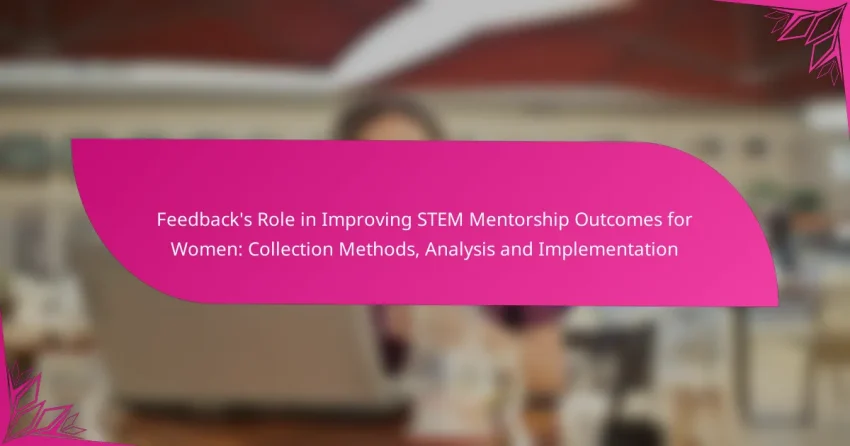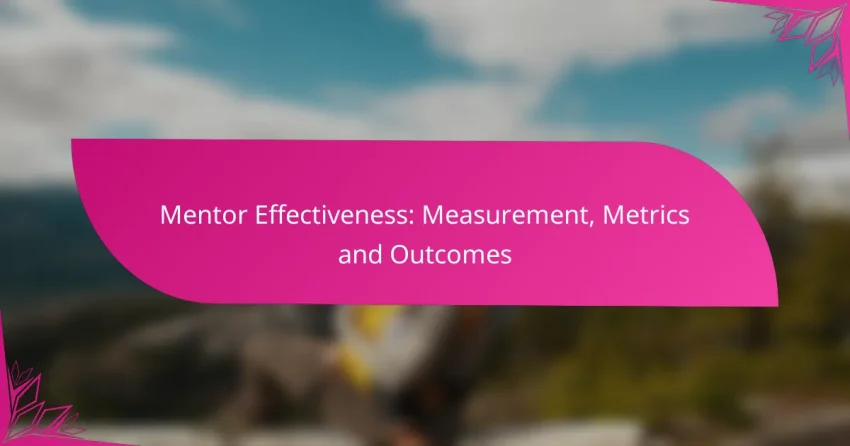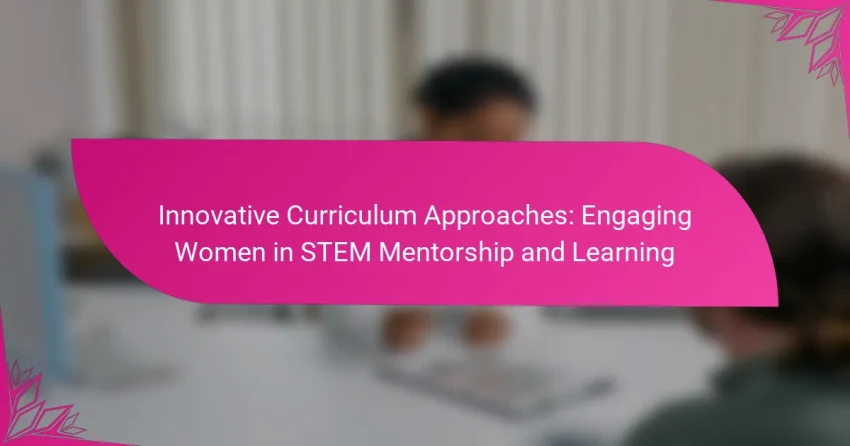Feedback plays a crucial role in improving STEM mentorship outcomes for women by promoting open communication and enabling personalized support strategies. By employing various collection methods, such as surveys and interviews, mentors can gain valuable insights into the unique challenges faced by their mentees. Analyzing this feedback allows organizations to identify trends and refine their…
Author: John Doe
Mentor Effectiveness: Measurement, Metrics and Outcomes
Measuring mentor effectiveness is crucial for understanding the impact of mentoring relationships on both mentors and mentees. This involves utilizing various methods such as feedback collection, performance metrics analysis, and tracking goal achievement to evaluate the success of these relationships. Ultimately, effective mentoring fosters enhanced employee engagement, productivity, and retention, benefiting both individuals and organizations…
Innovative Curriculum Approaches: Engaging Women in STEM Mentorship and Learning
Innovative curriculum approaches are essential for engaging women in STEM, as they emphasize interactive and collaborative learning that aligns with students’ interests and career goals. By integrating effective mentorship models and leveraging technology tools, these strategies not only enhance learning experiences but also contribute to closing the gender gap in STEM fields. How can innovative…
Parental Support: Influence, Engagement and Benefits
Parental support is essential for children’s emotional, cognitive, and social development, creating a nurturing environment that encourages resilience and learning. When parents actively engage in their children’s education, it not only enhances student success but also strengthens family relationships and community connections. By fostering open communication and utilizing technology, parents can stay informed and involved,…
Virtual Networking Opportunities: Accessibility, Engagement and Collaboration
Virtual networking presents a transformative opportunity for accessibility, allowing individuals from various backgrounds to connect without geographical constraints. By leveraging interactive tools and real-time communication features, these platforms enhance engagement and collaboration, fostering a sense of community among participants. This inclusive approach not only accommodates diverse needs but also enriches professional and social interactions in…
Fostering Professional Relationships in STEM Mentorship: Trust, Communication and Growth
Fostering professional relationships in STEM mentorship is crucial for creating a supportive and productive environment. Trust, built through clear communication and mutual respect, serves as the foundation for these relationships. By employing effective communication strategies and exploring growth opportunities, both mentors and mentees can enhance their collaborative experience and expand their career prospects. How can…
Funding Strategies: Securing Support for STEM Mentorship Programs
Securing funding for STEM mentorship programs is essential for their sustainability and growth. Effective strategies include leveraging grants, corporate sponsorships, community fundraising, and crowdfunding platforms, each offering distinct advantages. By evaluating potential funding sources based on alignment with program goals and accountability requirements, organizations can ensure they effectively support their initiatives while advancing their mission….
Alumni Networks in STEM Mentorship: Connections, Resources and Support
Alumni networks play a vital role in enhancing mentorship within STEM fields by facilitating connections among professionals and providing essential resources and support. By leveraging the experiences of former students, these networks create collaborative environments that benefit both current learners and alumni, fostering relationships that can lead to mentorship and career opportunities. How do alumni…
Assessing Career Progression of Women in STEM Post-Mentorship: Metrics, Trends and Success Stories
Assessing the career progression of women in STEM after mentorship reveals critical insights into their advancement and success. By examining key metrics such as salary growth, leadership positions, and retention rates, we can better understand the impact of mentorship programs. This analysis highlights the significant strides women are making in technical fields and the evolving…
Mentor-Mentee Compatibility: Evaluation Methods and Tools
Evaluating mentor-mentee compatibility is crucial for fostering a productive relationship, as it involves assessing shared values, goals, and communication styles. Utilizing effective methods such as assessment tools, structured interviews, and personality tests can enhance this evaluation process, ensuring both parties align in their objectives and approaches. By focusing on these criteria, mentors and mentees can…









